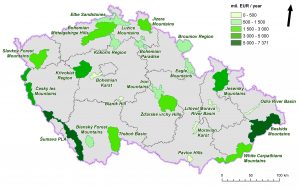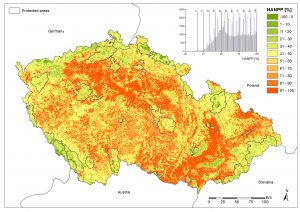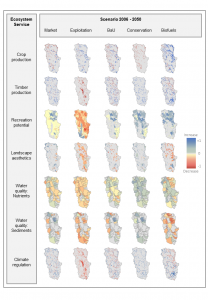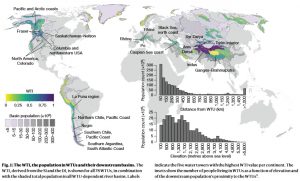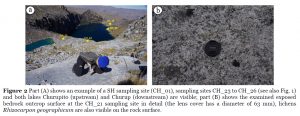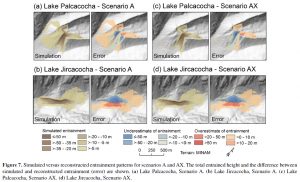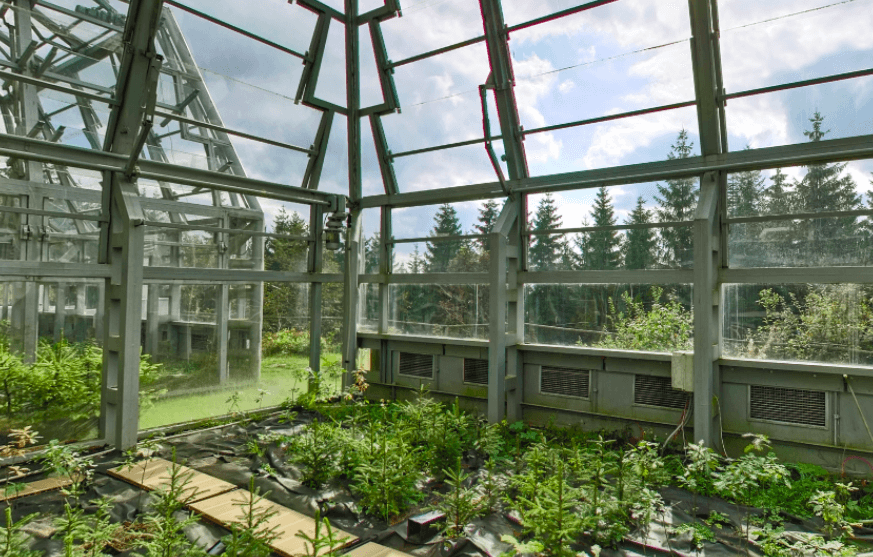prof. Dr. Julia Mildorfova Leventon – head
Scientists:
M.A. Abhigya –
Mgr. et Mgr. Jan Daněk, Ph.D.
Mgr. Johana Drlíková
Mgr. Ewa Małgorzata Duda
MSc. Charlotte Emma Louise Horáková, Ph.D.
Mgr. et Mgr. Eva Horváthová, Ph.D.
Mgr. et Mgr. Petr Krpec, Ph.D.
Mgr. Blanka Loučková, Ph.D.
MA Elif Tugba Simsek, Ph.D.
Mgr. David Stella, Ph.D.
Mgr. Eliška Tichopádová
Mgr. Jan Urban, Ph.D.
Mgr. Davina Elena Vačkářová, Ph.D.
MSc. Simeon Vaňo, PhD.
Mgr. Simona Zvěřinová
Ph.D. students:
MSc. Helena Duchková
MSc. Patricia Ofori-Amanfo
Mgr. et Mgr. Tereza Prášilová
Others:
MSc. Tomáš Baďura, Ph.D.
The Department of Human Dimensions of Global Change creates knowledge on societal transformations for sustainable, flourishing life on Earth.
We draw on a range of SSH, inter- and transdisciplinary research approaches to understand people, policy and politics and their role in creating and solving sustainability problems. We explore the interconnectedness, complexity and intransigence of behaviour and political decision-making and change therein. Our work is policy relevant; it creates knowledge to guide and facilitate more sustainable outcomes. But our work is also critical: it challenges political framings of problems and the ways these limit solution spaces. We therefore engage with questions of power and justice in sustainability, including critiquing dominant paradigms.
Example topics included within our scope of work
- Ecosystem services and accounting
- Scaling behaviour change for sustainability
- Decision-making and governance transformations
- Justice in urban and landscape planning
- Protected area governance
- Epistemic justice and problem framings
To learn more about the work of the department, you can also see our blog Sustainable CZ for research updates (shared with our sister department of Social Ecological Systems Analysis).
Research approach
Researchers in the department come from a broad range of social science and humanities backgrounds, and work in an interdisciplinary and transdisciplinary approach. Our work spans multiple social systems scales and is sensitive to the social-economic-political context in which it is created. We publish in high-quality and respected peer-review journals, and respect the principles and practice of open science. We create real-world impact from our research by communicating beyond academia to policy, practice and public forums. We represent social global change research in Czech, European and International research and policy communities, demonstrating the specificities of CEE perspectives.
Example disciplines that contribute to our work:
- Sustainability Science
- Systems thinking
- Ecological economics
- Environmental economics
- Social Psychology
- Political Science (including governance and institutions)
- Sociology
- Science and Technology Studies
- Geography
Our current projects include:
One Nature (IP Life): Working with biodiversity data and ecosystem service assessments, this project aims to establish a more effective management system for Natura 2000 network sites in the Czech Republic.
SSH Centre: Social Sciences and Humanities for Climate, Energy and Transport Research Excellence (Horizon Europe): A capacity and support action improving the visibility of SSH research in European research and action.
FoSTA Health: Food Systems Transformation in Southern Africa for One Health (Horizon Europe): A participatory project in Zambia, South Africa, Malawi and Tanzania using systems thinking approaches for sustainability transformation.
SELINA: Science for Evidence-based and Sustainable Decisions about Natural Capital (Horizon Europe): Providing guidance for evidence-based decision-making that supports the protection, restoration, and sustainable use of the environment.
PLANET4B: Understanding Plural values, intersectionality, Leverage points, Attitudes, Norms, behaviour and social lEarning in Transformation for Biodiversity decision making (Horizon Europe): Exploring, with case studies across Europe, how different social-cultural factors intersect and shape biodiversity decision-making.
HODEZ: The project compares the ecosystem services provided by conventional agriculture and organic agriculture. Results should inform strategies to support the uptake of organic agriculture in the Czech Republic.e Department of Human Dimensions of Global Change focuses on the interactions between people and the changing world. We explore the social-ecological aspects of sustainability challenges, such as climate change mitigation and adaptation, biodiversity loss, and disaster risk reduction. We work at a range of locations and scales, learning between Czechia and other locations throughout Europe and the world. Some further information on the department can also be found at http://www.ecosystemservices.cz/cs/o-nas/
Our current research topics include:
- Natural hazard analysis and susceptibility mapping for enhanced disaster risk reduction
- Geo-environmental change in high mountain regions (drivers, dynamics and impacts)
- Protected area management
- Transformation pathways for sustainable futures
- Ecosystem service mapping and valuation
The Department has been engaged in numerous high-profile research projects within extensive international networks, namely:
- ESMERALDA (Enhancing ecoSysteM sERvices mApping for poLicy and Decision mAking) – funded by EU H2020
- BASE (Bottom-up Climate Adaptation Strategies towards a Sustainable Europe) – funded by EU FP7
- UrbanAdapt (Urban Adaptation to Climate Change) – funded by EEA grant from Iceland, Liechtenstein, and Norway)
Research Approach
We are a department of experts from a broad range of research disciplines including environmental modelling, physical and human geography, economics, sociology, political science and sustainability science. We work together, combining qualitative and quantitative approaches, to produce interdisciplinary understandings of the human dimensions of global change.
The methods and approaches that we engage with include:
- Transdisciplinary knowledge creation
- Deliberative methods (participatory approaches, stakeholder engagement and mapping, interviews, focus groups, etc.)
- future scenario planning, sustainability pathways
- GIS modelling, ecosystem services modelling
- remote sensing data analysis (multitemporal optical images, detection and quantification of geoenvironemntal changes)
- field work (geomorphological mapping, palaeogeographical reconstructions, dating, etc.)
Impact
Our work is both scientifically and socially relevant. To ensure this, we work with the participation of people and organisations. Together we explore, understand, and create solutions to, sustainability problems. By doing so, we ensure that we create knowledge that is useful for decision-making and management of natural resources. The outcomes of our work inform natural resource and sustainability policy from local to international level.
We have taken part in projects supporting sustainability endeavours of large-scale international organisations:
- Piloting System of Environmental and Economic Accounting –Experimental Ecosystems Accounting (SEEA-EEA) in Kyrgyzstan – funded by UNDP Czech Trust Fund
- SEACRIFOG (Supporting EU-African Cooperation on Research Infrastructures for Food Security and Greenhouse Gas Observations – funded by EU H2020
- MAIA (Mapping and Assessment for Integrated Ecosystem Accounting) – funded by EU H2020
- EC Developing key ecosystem indicators and policy pathways for post-2020
The department has contributed to products widely used by Czech administration bodies and practitioners:
- CLES (Consolidated Layer of Ecosystems), a map resource for ecosystem service assessment, distributed by the Nature Conservation Agency of the Czech Republic (AOPK).
Database of nature-based adaptation measures (available here)
Members of the department are actively engaged in science-policy interfaces:
- IPBES (Intergovernmental Science-Policy Platform on Biodiversity and Ecosystem Services)
- EKLIPSE (Knowledge and Learning Mechanism on Biodiversity and Ecosystem Services)
- ICGdR (International Consortium on Geo-disaster Reduction)

